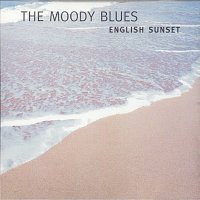
The Moody Blues were an English rock band formed in Birmingham in May 1964. The band initially consisted of drummer Graeme Edge, guitarist/vocalist Denny Laine, keyboardist/vocalist Mike Pinder, multi-instrumentalist/vocalist Ray Thomas, and bassist/vocalist Clint Warwick. Originally part of the British beat and R&B scene of the early–mid 1960s, the band came to prominence with the UK No. 1 and US Top 10 single "Go Now" in late 1964/early 1965. Laine and Warwick left the band by the end of 1966, being replaced by guitarist/vocalist Justin Hayward and bassist/vocalist John Lodge. They embraced the psychedelic rock movement of the late 1960s, with their second album, 1967's Days of Future Passed, being a fusion of rock with classical music that established the band as pioneers in the development of art rock and progressive rock. It has been described as a "landmark" and "one of the first successful concept albums".

David Justin Hayward is an English musician. He was the guitarist and frontman of the rock band the Moody Blues from 1966 until that group's dissolution in 2018. He became the group's principal vocalist and its most prolific songwriter over the 1967–1974 period, and composed several international hit singles for the band.
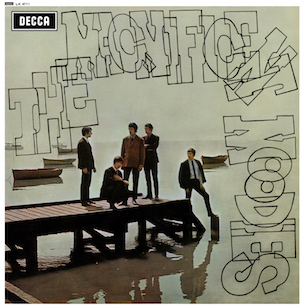
The Magnificent Moodies is the 1965 debut album by British rock band the Moody Blues, released on Decca Records.
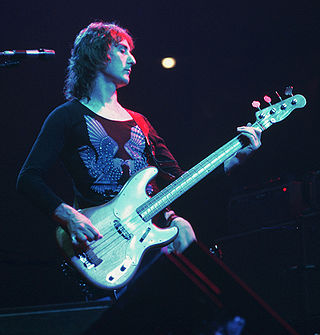
Brian Frederick Hines, known professionally as Denny Laine, was an English musician who co-founded two major rock bands: the Moody Blues and Wings. Laine played guitar in the Moody Blues from 1964 to 1966, and he sang their hit cover version of "Go Now". While the Moody Blues were on tour with the Beatles in 1965, Laine befriended Paul McCartney, who later asked him to join his band Wings.
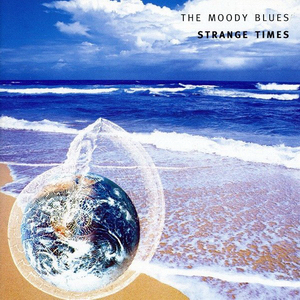
Strange Times is the fifteenth and penultimate studio album by the rock band the Moody Blues, released in 1999. The sound features mostly acoustic guitar, slightly processed electric guitar, light organ, flute, and string arrangements, with heavy synthesizer use in the fast-paced opening track, "English Sunset". This was the last Moody Blues album to feature longtime flautist and vocalist Ray Thomas.
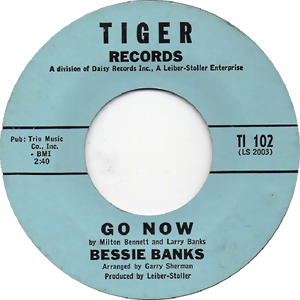
"Go Now" is a song composed by Larry Banks and Milton Bennett and first recorded by Bessie Banks, released as a single in January 1964. The best-known version was recorded by the Moody Blues and released the same year.

"Ride My See-Saw" is a 1968 single by the English progressive rock band the Moody Blues. It was written by the band's bassist John Lodge, and was first released on the Moody Blues' 1968 album In Search of the Lost Chord. It was the second of two singles from that album, the other being "Voices in the Sky".

"I'm Just a Singer (In a Rock and Roll Band)" is a 1973 hit single by the English progressive rock band the Moody Blues, written by the band's bassist, John Lodge. It was first released in 1972 as the final track on the album Seventh Sojourn and was later released as a single in 1973, with "For My Lady" as its B-side. It was the second single released from Seventh Sojourn, with the first being "Isn't Life Strange", which was also written by Lodge.

"Tuesday Afternoon" is a 1968 song written by Justin Hayward that was first released by English rock band the Moody Blues on their 1967 album Days of Future Passed and later released as a single.

"I Know You're Out There Somewhere" is a 1988 single by the English rock band the Moody Blues. It was written by guitarist Justin Hayward, and it is the sequel to the Moody Blues' 1986 single "Your Wildest Dreams", also written by Hayward. It is the band's final Top 40 single in the United States, peaking at #30 on the Billboard Hot 100.
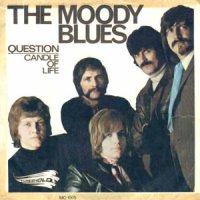
"Question" is a 1970 single by the English progressive rock band the Moody Blues. It was written by guitarist Justin Hayward, who provides lead vocals. "Question" was first released as a single in April 1970 and remains their second highest-charting song in the UK, reaching number two and staying on the chart for 12 weeks. The song reached number 21 on the Billboard Top 40 in the USA. It was later featured as the lead track on the 1970 album A Question of Balance. The single also features the song "Candle of Life" on its B-side, which was from the Moody Blues' previous album To Our Children's Children's Children.
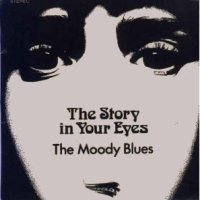
"The Story in Your Eyes" is a 1971 hit single by the English rock band the Moody Blues. Written by the band's guitarist Justin Hayward, it was first released as a single with "My Song" on the B-side, and then on the 1971 album Every Good Boy Deserves Favour shortly after.

"Steppin' in a Slide Zone" is a 1978 single by the English progressive rock band the Moody Blues. It was the first single the Moody Blues had released in five years, after the band's temporary hiatus. It was written by bassist John Lodge, and was released a month later on the album Octave. The song peaked at number 39 on the US Billboard Hot 100 and number 41 in Canada.

"Driftwood" is a 1978 single by the English progressive rock band the Moody Blues. It was the second single released from the album Octave, after "Steppin' in a Slide Zone". Written by Justin Hayward, "Driftwood" is a slow love ballad, in a similar manner to "Nights in White Satin" and "Never Comes the Day."
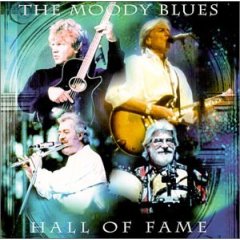
Hall of Fame is a live album by the progressive rock band the Moody Blues. It was recorded at a concert performed at the Royal Albert Hall, which included backing by a live orchestra. The album was released on 8 August 2000. It is the second Moody Blues live album to feature a live orchestra, with the first being A Night at Red Rocks with the Colorado Symphony Orchestra. This is the last live release to feature Ray Thomas.

"No More Lies" is the second single released from the Moody Blues 1988 album Sur la Mer. As a single, it charted at #15 on the Adult Contemporary chart in 1988. Like the album's previous single, "I Know You're Out There Somewhere," "No More Lies" was written by Justin Hayward.

Live at the Isle of Wight Festival 1970 is a live album by the Moody Blues that consists of their live performance at the Isle of Wight Festival in 1970. The album was released in 2008.

Michael Thomas Pinder was an English rock musician. He was a founding member and the original keyboard player of the rock group the Moody Blues. He left the group following the recording of the band's ninth album Octave in 1978. Pinder was renowned for his technological contributions to rock music, most notably in the development and emergence of the Mellotron in 1960s rock music. In 2018, he was inducted into the Rock and Roll Hall of Fame as a member of the Moody Blues. He was the last surviving member of the group's original lineup.

Days of Future Passed Live is a live album by The Moody Blues that consists of their live performance at the Sony Centre for the Performing Arts in Toronto in 2017. The album was released on 23 March 2018.
